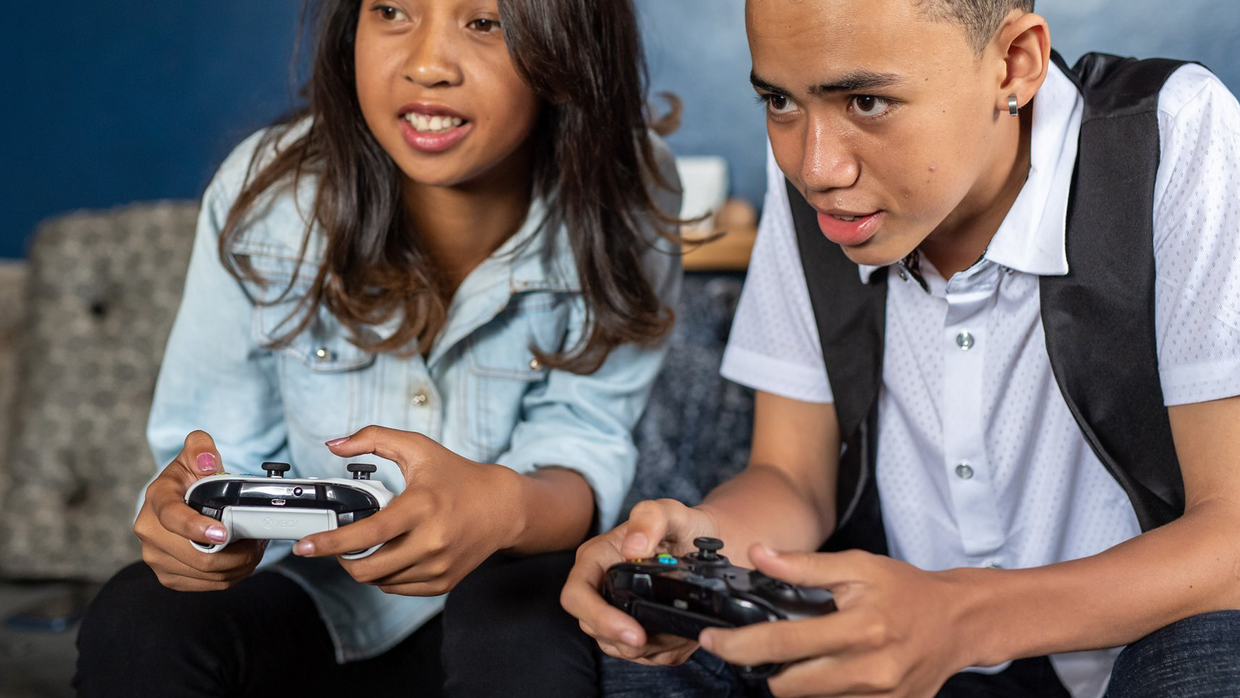Children and video games: good practices

Children, parents, follow Ibrahima Sene’s advice for safe gaming.
Video games: a popular activity for children.
Every day, worldwide, 170,000 children go online for the first time [1]. In Europe, 73% of children use the Internet before the age of two [2].
Moreover, playing online, alone, with robots, or with other people, has become the norm. These games range from simple single-player games to multiplayer online games (MMOs) involving countless gamers located on several continents. Most of these MMOs include virtual communities and can expose players to the risks associated with social networks.
According to a McAfee survey, 62% of children play games where they talk to other people. Parents responding to these surveys are increasingly concerned that these strangers may be predators, bullies or cybercriminals who could steal personal or financial information.
What to do about these risks? Here are our answers.
Video games: our advice to parents
- Use parental control software on every device the child can access (including the parents’ smartphone). For some games, for example, you can choose to receive a weekly report of your children’s activity.
- Monitor integrated purchasing. With the “Ask a Parent” option, available for some games, parents receive a message when children want to purchase a game or application.
- Download applications and games from official game sites or Apple or Microsoft stores.
- Customize privacy settings for games and computer devices: change passwords, PIN codes, disable unused connectivity (Wi-Fi, Bluetooth) or send technical data to the manufacturer.
- Update video game applications on a regular basis. These are old software vulnerabilities that cybercriminals use in the vast majority of cases.
- Scan gaming terminals with a powerful antivirus capable of detecting malicious files and deleting them.
- Explain to the children that they must not communicate their personal data (address, surname, first name, email, bank details…).
- Use a webcam cache when playing computer games.
- Use a VPN (virtual private network). A gaming VPN provides secure access by masking the real IP address, which reduces the risk of location.
- Take into account the age classifications of the games when making purchases. PEGI[5] offers a very simple classification: a glance is enough for parents to know the minimum age required in relation to the content of the game (3, 7, 12, 16 or 18 years old).
- Tell the children that they should not meet other players unless you accompany them.
- Interrupt the communication or change the online ID in case of an abnormal situation in the game.
In all cases, parents should keep in mind that once a child enters adolescence, it is still quite difficult to monitor his or her Internet activities. So, while toddlers and children can be accompanied every time they play online, the best thing to do is to make them aware as early as possible.
Safety tips for children
- Always use a nickname and an avatar.
- Do not bounce from one application to another: video game applications offer to connect with a Facebook or Google account. It is preferable to create a login and password that will only be used for the game in question.
- Report any inappropriate behavior (intimidation, threats or vulgarity, posting of unwanted content, invitation to meet outside the game), using the site’s comments page or the complaint procedures provided. It is also possible to block a player. The latter will no longer be able to contact the child.
- Not to communicate personal information (postal address, e-mail, telephone number, passwords or photos).
- Keep in mind that video game publishers never call to ask for a password or personal data.
- Don’t believe everything you read on the Internet. If something seems too good to be true (like free elements for a game that would usually be paid for), it’s better to be wary.
